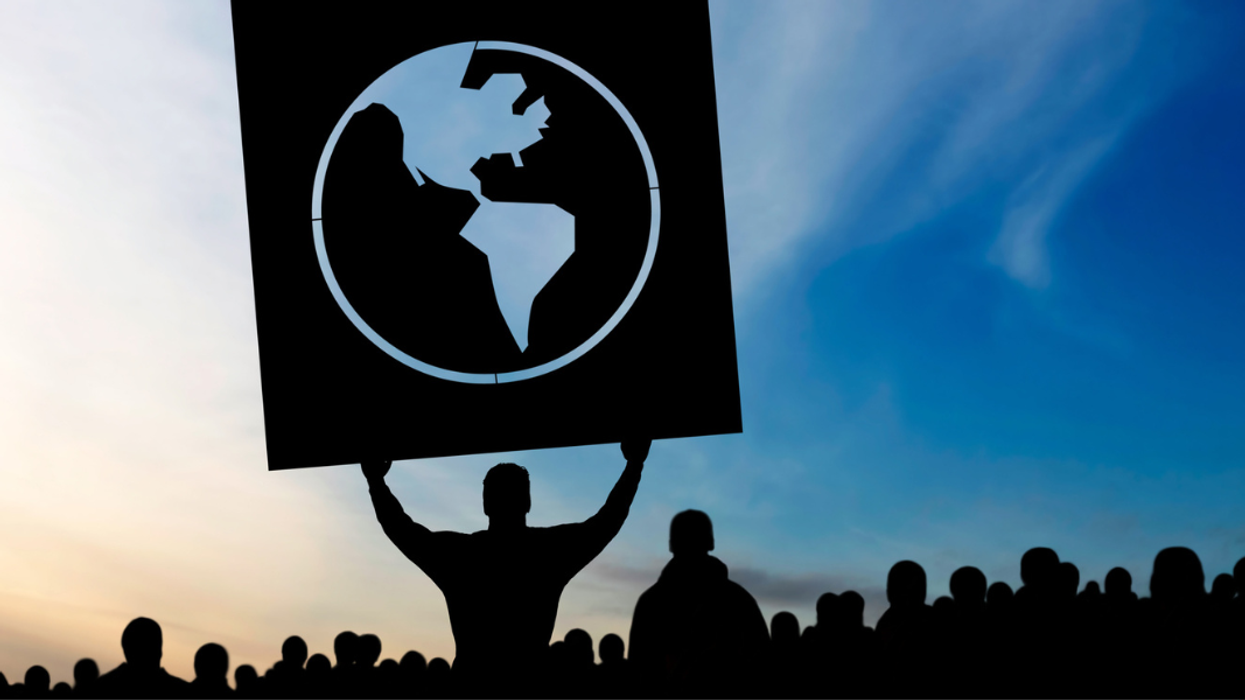Evensen is the Deseret News’ senior editorial columnist. He’s been a member of the Deseret News editorial board since 1994, following an 11-year career as a reporter for news organizations in New York City, Las Vegas and Salt Lake City.
Sam Daley-Harris was playing the timpani in his high school orchestra in 1964 when he first came face-to-face with questions that would guide his life.
A flute player told him one of his fraternity brothers, a close friend, had been killed in a tractor-trailer accident. “I was 17,” he told me. “Mortality was an irrelevant concept.”
But suddenly he was faced with heavy questions that would follow him for years. Why am I here? What am I here to do? What’s my purpose?
These came up again four years later when Sen. Robert F. Kennedy was assassinated.
Daley-Harris tells this story — his origin story — whenever he explains how he got started in what he calls “transformational advocacy.”
Daley-Harris found his purpose. He founded a nonprofit called Results. It’s an organization that has lived up to its name. Results has played a key part in what may be one of the century’s least-told success stories — the drop in preventable child deaths worldwide from 40,000 per day in the early 1980s to 13,800 per day in 2021.
As he describes it in the latest edition of his book, “ Reclaiming our Democracy,” this success translates to almost 10 million people per year who are alive today, when they otherwise would have succumbed to malnutrition or preventable diseases.
I have to pause here and disclose that Results gave me an award in 2011 for reporting about issues related to global poverty and hunger. But it’s the remarkable record of success on this and other issues (Results first introduced me to Nobel Peace Prize winner Muhammad Yunus and his poverty fighting microcredit program), not an award, that have led me to write about the organization for more than a decade.
Daley-Harris’ book, which is scheduled for release in January, lays out step-by-step instructions for how to become an effective transformational advocate, not just a member of a large nonprofit that circulates petitions and raises money. The latter rarely accomplishes anything.
More than that, however, it is a guide to help organizations become successful.
Almost everyone shies away from advocacy as a way to make a difference in the world, he said.
“Why? Because most of us see advocacy as too hard or too frustrating, too complicated, or too partisan, too dirty or too time-consuming, too ineffective or too costly,” he writes in the book, asking, “But what if that’s all wrong?”
Daley-Harris has had success because he learned how to get attention in Washington, where good ideas alone are not enough. He learned how to teach people to access editorial boards and others to whom politicians pay attention, and to leverage the pressure-points in the halls of power. He trains volunteers in how to become spokespersons for their cause, how to write letters to the editor and op-eds, how to contact members of Congress and how to react to rejection with a courtesy and politeness that builds relationships.
Volunteers are taught to say, “I know you don’t support this bill. What would it take to change your mind?”
More than a how-to for advocacy, he believes it is a primer for citizenship. He is less worried about a broken federal government than about what he calls “a broken citizenry.”
“A lot of things worry me,” he told me. “One is that Americans think they can’t make a difference. ‘I voted. I’m done, right? Between elections there’s nothing for me to do.’”
Reclaiming democracy is about reclaiming citizenship. Find an issue about which you feel passionate, identify a real solution and work effectively to make a difference.
And along the way, perhaps the nation can get past its perpetual political nastiness and onto the road toward collective solutions.
“Hopefully, the book will not only get lots of new people into the game, but get lots of nonprofits upping their game,” he said.
Despite feeling that nudge to ask himself those life-altering questions in the ’60s, it wasn’t until 1978, after starting to get serious about world hunger, that high school music teacher Daley-Harris began speaking to classrooms about advocacy. He estimates he spoke to more than 7,000 students that school year. Each time, he would ask which of the kids could name their congressional representative.
Only about 200 knew the answer. It was a dismal realization, but also a source of motivation that has grown only stronger in the years since.
Recently, a student at Rutgers asked Daley-Harris what he thinks is the most important issue for the future.
“For me, the most important issue is for people to see that they make a difference, and have vehicles to do that in,” he told the student. “Not, ‘you can make a difference, good luck!’”
If he can match motivated citizens with successful organizations, like his own, he believes his ideas can outlive him.
The book makes a strong case for the kind of advocacy that could help good ideas rise on their merits, rather than sinking in a political morass. Certainly, Daley-Harris has the kind of track record that gives his ideas credibility.
This piece was originally published in the Deseret News.



















